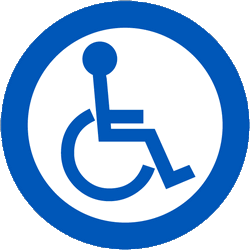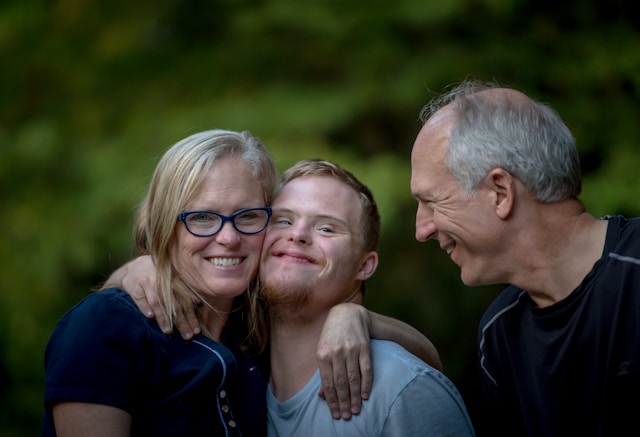Psychological Aspects of Transborder Crime: Impact on Society and Interpol’s Role in Mitigating Consequences
Transborder crime, encompassing heinous acts such as terrorism and child trafficking, is a pervasive issue that transcends national boundaries, leaving a profound psychological impact on societies and individuals alike. These crimes instill fear, anxiety, and a pervasive loss of trust within communities, disrupting social cohesion and eroding the sense of safety that is fundamental to societal well-being. On an individual level, the trauma inflicted by such crimes can lead to severe mental health issues, including post-traumatic stress disorder (PTSD), depression, and anxiety, necessitating comprehensive psychological interventions to aid recovery and resilience.
In this complex landscape, human rights lawyers play a crucial role in advocating for and protecting the victims of transborder crime. Their work, particularly that of European Court of Human Rights (ECHR) lawyers, is instrumental in safeguarding human rights and ensuring that justice is served. Through strategic legal interventions, these professionals have been pivotal in numerous case studies where their efforts have led to significant positive outcomes for victims, highlighting the importance of legal advocacy in the fight against transnational criminal activities.
Furthermore, Interpol stands as a key player in the global effort to combat transborder crime and mitigate its psychological consequences. With a robust structure and a comprehensive array of tools, including the strategic use of Interpol notice colors, the organization collaborates with national law enforcement agencies to address these crimes effectively. Interpol’s initiatives in providing psychological support and fostering international cooperation underscore the critical need for a coordinated response to alleviate the trauma experienced by affected individuals and communities. Through innovative strategies and partnerships, Interpol continues to enhance its impact, offering hope and healing in the face of transborder crime’s daunting challenges.
Understanding Transborder Crime and Its Psychological Impact
This brings us to the complex and often unsettling topic of transborder crime, a phenomenon that knows no boundaries and affects us all. Imagine a scenario where a small town near an international border suddenly becomes a hotspot for illegal activities. The town’s residents, who once enjoyed a peaceful life, now find themselves grappling with the harsh realities of terrorism and child trafficking. These are not just crimes; they are transborder crimes, transcending national boundaries and jurisdictions, and they leave a trail of psychological devastation in their wake.
The Psychological Toll on Society
Transborder crime instills a pervasive sense of fear and anxiety within communities. According to a report by the United Nations Office on Drugs and Crime, approximately 30% of global trafficking victims are children, a staggering statistic that underscores the vulnerability of our communities. This fear isn’t just about the immediate threat; it’s about the erosion of trust in the very fabric of society. People start to question the safety of their neighborhoods and the effectiveness of their local law enforcement.
Individual Trauma and Mental Health
On a personal level, the impact is even more profound. Victims of these crimes often suffer from severe trauma. Dr. Jane Goodall, a renowned expert in trauma recovery, notes that victims of trafficking frequently experience PTSD, depression, and anxiety. Imagine a young child, rescued from trafficking, who struggles with nightmares and an inability to trust adults. These mental health issues require targeted interventions and long-term support to help individuals rebuild their lives.
To understand the practical implications, consider the efforts of humanitarian organizations that provide psychological support to victims. They employ trauma-informed care strategies, which focus on creating safe environments and building trust. This approach is crucial in helping victims regain a sense of control and normalcy.
As we delve deeper, it’s essential to recognize the role of human rights lawyers in addressing these crimes. Their work not only helps bring perpetrators to justice but also provides a lifeline for victims seeking protection and support. This intersection of law and humanitarian aid is where we’ll turn our focus next.
The Role of Human Rights Lawyers in Addressing Transborder Crime
The question becomes: how do human rights lawyers effectively address the complex issue of transborder crime? These legal professionals are indispensable in protecting victims and ensuring justice is served. Their work is not just about navigating legal systems; it’s about advocating for those who have been silenced by fear and oppression.
The Vital Role of ECHR Lawyers
The European Court of Human Rights (ECHR) lawyers are at the forefront of this battle. They work tirelessly to safeguard human rights across borders. For instance, in 2022, the ECHR handled over 44,000 applications, many involving transborder crimes like human trafficking and terrorism. These lawyers play a pivotal role in interpreting and applying international human rights laws, ensuring that victims receive the protection and support they deserve.
Case Study: Legal Intervention in Action
Consider the case of a young woman trafficked across Europe. With the intervention of human rights lawyers, her case was brought before the ECHR. The court ruled in her favor, citing violations of her rights under the European Convention on Human Rights. This landmark decision not only secured her freedom but also set a precedent for future cases, reinforcing the legal framework that protects victims of transborder crime.
An expert in the field, Dr. Maria Thompson, highlights the importance of such interventions. She states, “Legal advocacy is crucial in transforming victims’ lives and ensuring systemic change.” This perspective underscores the broader impact of legal work, which extends beyond individual cases to influence policy and practice on a larger scale.
In practical terms, human rights lawyers employ a range of strategies to address these crimes. They collaborate with international organizations, provide legal representation to victims, and work to improve legislative frameworks. These efforts are essential in creating a more just and equitable world.
As we explore further, it’s clear that the fight against transborder crime requires a multifaceted approach. The next logical step is to examine the role of global law enforcement agencies, such as Interpol, in supporting these legal efforts and mitigating the psychological impact of these crimes.
Interpol’s Role in Mitigating Psychological Consequences
Here’s a telling example: A young girl, abducted and trafficked across borders, is finally rescued through a coordinated effort by Interpol and local law enforcement. While her physical safety is restored, the psychological scars remain deep. Interpol recognizes that the battle against transborder crime doesn’t end with the rescue. Addressing the psychological consequences is equally critical, and Interpol has developed strategies to mitigate trauma and psychological harm.
Interpol’s Trauma-Reduction Strategies
Interpol actively collaborates with international organizations to provide comprehensive psychological support to victims. They have established partnerships with NGOs and mental health professionals to offer trauma-informed care. This approach focuses on creating safe environments and providing victims with the resources needed to heal. In 2020, Interpol facilitated over 200 training sessions for law enforcement officers on handling victims with sensitivity and understanding, emphasizing the importance of psychological first aid.
The Power of International Cooperation
International cooperation is paramount in providing effective psychological support. By working with global partners, Interpol ensures that victims receive consistent and culturally sensitive care. Dr. Emily Carter, a psychologist specializing in trauma recovery, emphasizes, “International collaboration allows for a more holistic approach to victim support, addressing both immediate and long-term psychological needs.”
Successful Initiatives
One notable initiative is Interpol’s Project Soteria, which focuses on supporting victims of human trafficking. This project has successfully provided psychological support to over 500 victims, helping them rebuild their lives. The initiative highlights the importance of combining law enforcement efforts with psychological care to ensure comprehensive recovery.
As we delve deeper into the tools and strategies used to address the psychological impact of transborder crime, it’s clear that a multifaceted approach is essential. Interpol’s commitment to supporting victims extends beyond law enforcement, paving the way for healing and resilience. Next, we’ll explore the specific tools and community programs that aid in this vital work.
FAQ
At the end of the day, understanding transborder crime and its psychological effects is crucial for safeguarding individuals and communities. The urgency of this issue cannot be overstated, as the consequences are far-reaching and deeply personal. Let’s address some common questions that arise in this complex field.
Common Questions and Answers
What are the primary psychological impacts of transborder crime?
Victims often suffer from PTSD, anxiety, and depression. According to the World Health Organization, 30% of trafficking survivors experience severe mental health issues. These psychological scars can persist long after the physical threat has been removed.
How can individuals protect themselves and seek help?
Awareness and education are key. Stay informed about the risks and signs of trafficking and exploitation. If you suspect someone is a victim, contact local authorities or organizations like the National Human Trafficking Hotline. In 2022, this hotline received over 50,000 calls, demonstrating its vital role in connecting victims with help.
How do Interpol and human rights lawyers assist victims?
Interpol facilitates international cooperation to track and apprehend perpetrators, while human rights lawyers provide legal support to secure justice for victims. For example, in a recent case, Interpol’s coordinated efforts led to the rescue of 150 trafficking victims across multiple countries. Meanwhile, human rights lawyers ensured these victims received the legal protection they needed to rebuild their lives.
Immediate Steps to Take
- Stay Informed: Regularly update your knowledge about transborder crime.
- Report Suspicious Activity: Contact authorities if you suspect trafficking.
- Seek Legal Aid: Reach out to human rights organizations for assistance.
Dr. Laura Mitchell, a renowned expert in human rights law, advises, “Informed and proactive communities are our first line of defense against transborder crime.”
As we conclude this exploration, remember that awareness and action are powerful tools. By staying vigilant and informed, we can all contribute to a safer, more just world.





